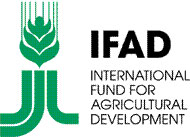21 January 2009: Ides Willebois, on behalf of Leonard Båge, President of the International Fund for Agricultural Development (IFAD), delivered a statement to the German Bundestag outlining IFAD’s perspective on the risks and opportunities of agro-biotechnology and other agricultural technologies.
The statement includes a definition of agro-biotechnologies, describes different methods of genetic modification and provides […]

21 January 2009: Ides Willebois, on behalf of Leonard Båge, President of the International Fund for Agricultural Development (IFAD), delivered a statement to the German Bundestag outlining IFAD’s perspective on the risks and opportunities of agro-biotechnology and other agricultural technologies.
The statement includes a definition of agro-biotechnologies, describes different methods of genetic modification and provides an overview of their applications in agriculture. While most applications focus on herbicide resistance and improved product shelf life, agro-biotechnologies could also improve the situation of poor farmers and address the challenges of climate change, by shortening growing seasons, increasing drought and salinity tolerance, preventing insect damage and improving nutritious value. In conclusion, the statement emphasizes the importance of publicly funded pro-poor agricultural research, including agro-biotechnology, through research organizations such as the Consultative Group on International Agricultural Research (CGIAR), to prevent a reversal of progress in poverty reduction caused by impacts of climate change, such as rising temperatures, climate variability, uncertain growing seasons, decreased water availability, new pests and diseases, and biodiversity loss. [The Statement]